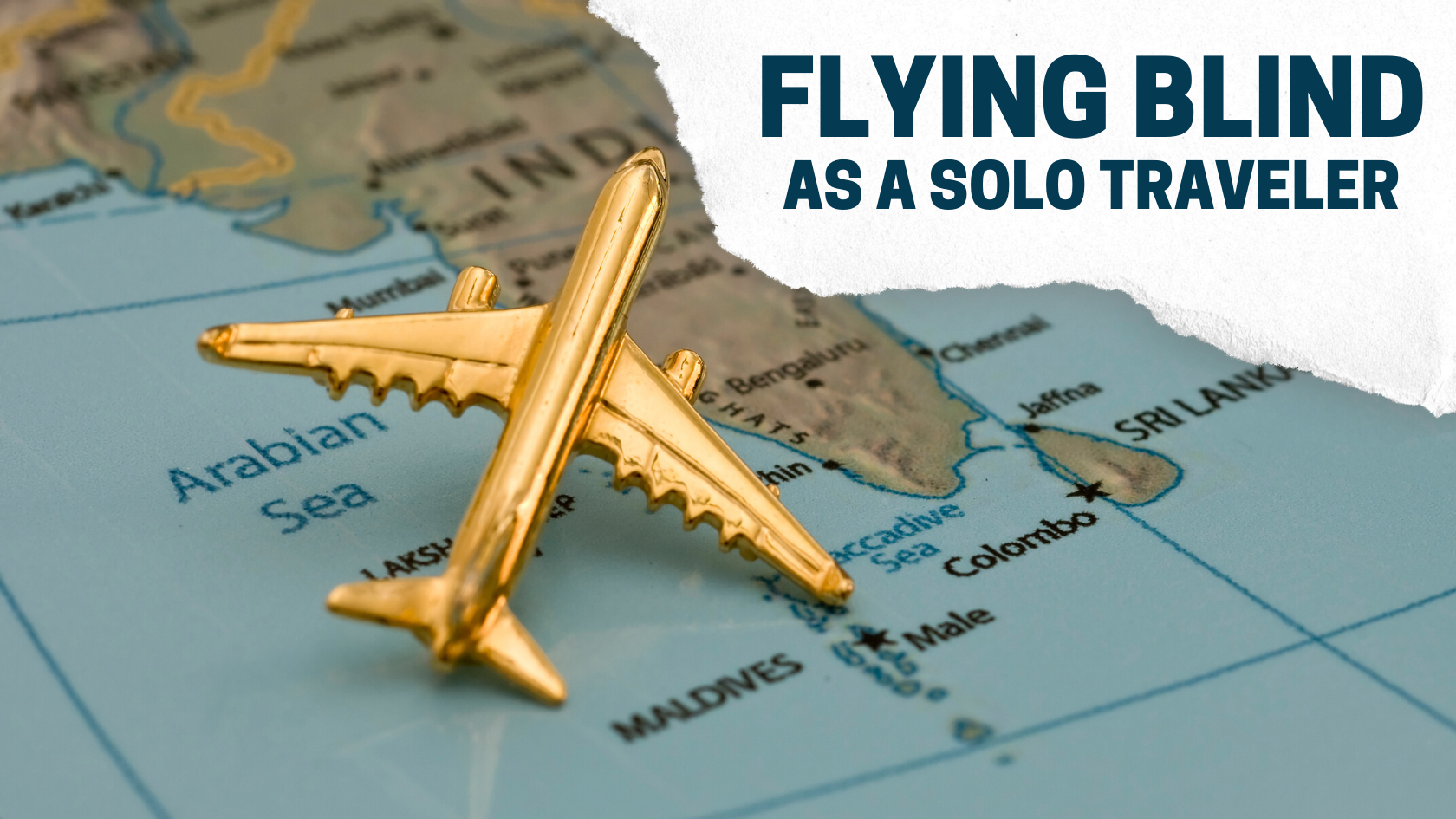
By: Megan Borella
An airport is a busy place, whether you can see all of the surrounding chaos or not. Traversing such a space is challenging at the best of times, but when you have a disability, travel becomes even more difficult and overly cumbersome. Although I need far less support than other people, I still dread the overly complicated process of flying.
Due to my visual impairment, I require an escort to guide me through security and to my gate when I fly. Generally, I must budget in several extra minutes to wait for this escort when planning how far in advance I should get to the airport, and finding an employee to contact the service for me is an additional concern. And when I finally have someone to help me reach my destination, they are rarely trained on how best to assist someone with a disability. Some I have encountered in the past have been nearly impossible to communicate with due to a language barrier. Because I am visually impaired, this is one of the worst possible scenarios for me to end up in.
Often, it is immediately apparent that the airport employees assigned to assist those of us with disabilities lack sufficient training. The escort and wheelchair service fall under the same category, so almost every time I travel I am asked if I need a wheelchair, despite my cane being the only visible sign of my visual disability. Even when I make it clear that I only need a guide to my gate, not a wheelchair, one is always provided just in case. Many escorts also are not familiar with how best to guide someone who is blind, causing me to have to be extra vigilant while navigating the airport. Another interesting thing I've noticed, which is not just an issue with airport staff, is that to many people a visual impairment is synonymous with a hearing impairment. Generally those working at security will talk to the escort assisting me rather than directly to me, almost as if I wasn't present. This emphasizes for me people's discomfort and uncertainty around disabilities; talking to the sighted person I'm with is easier and less frightening than approaching me directly. But this type of behavior does nothing to add to my travel experience.
Other people with disabilities have an even more challenging time when they choose to fly somewhere. Transferring from a wheelchair, for example, is an extra hassle, and forces you to put your trust in a stranger to assist you on to the plane. Also, wheelchairs must be checked, and I have heard of instances where they are damaged during travel. This is a huge problem, as chairs are expensive and maintaining or repairing them requires a serious investment. Thus, I know of some people in wheelchairs who choose to drive whenever possible to avoid any potential of a bad experience. And if I could do the same, I'm sure I would. I much prefer a long car drive to a flight due to all the obstacles I must anticipate. Even after flying independently for over three years, I am still looking for a solution to make this process more bearable and less of a burden. But airports can certainly help on their end through teaching their staff to be more cognizant of the needs of disabled travelers.
Originally Posted: 28 January 2020

